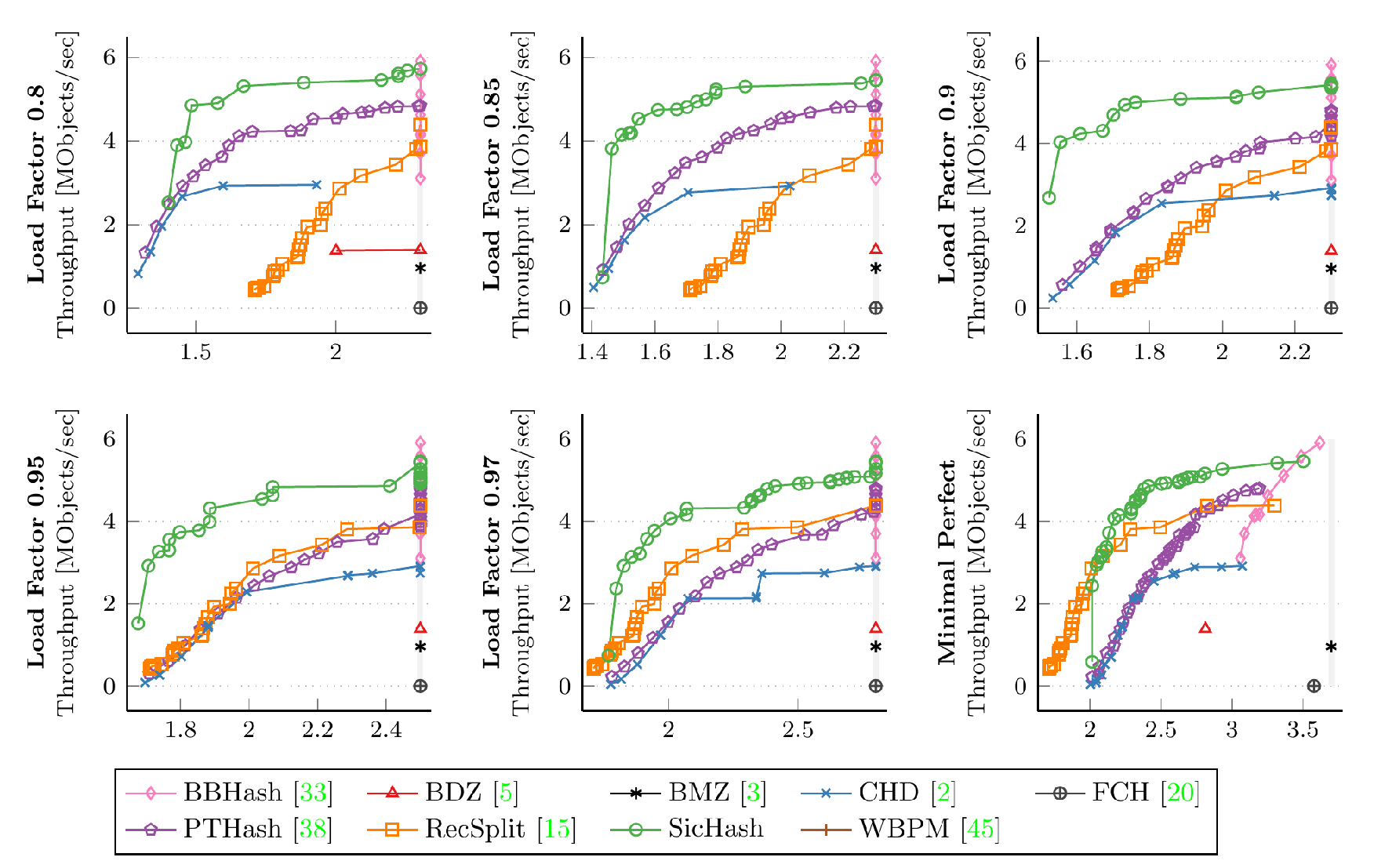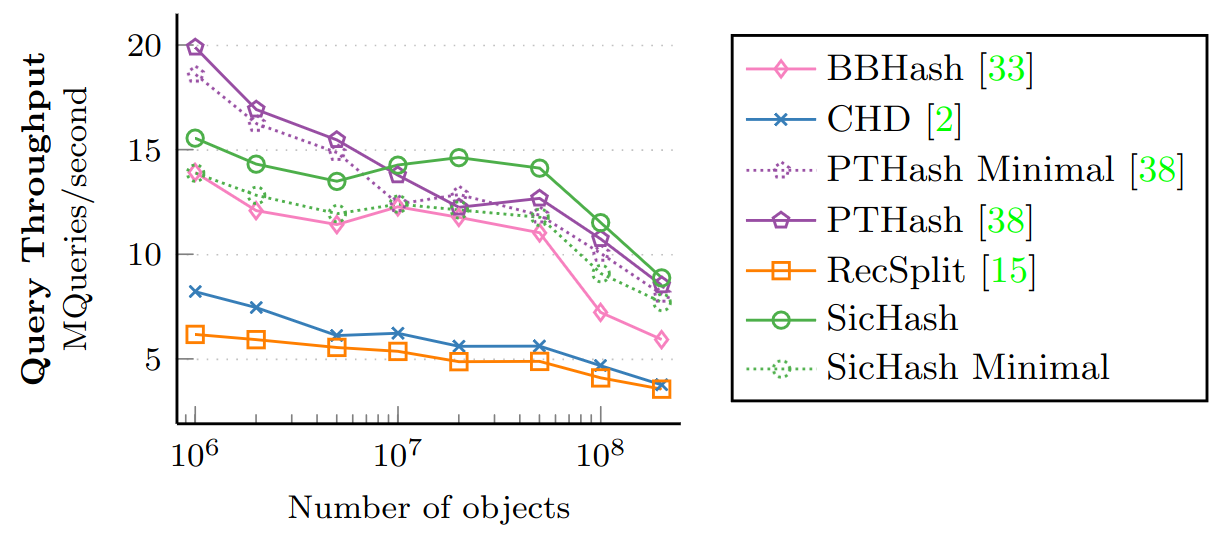SicHash
A perfect hash function (PHF) maps a set S of n keys to the first m integers without collisions. It is called minimal perfect (MPHF) if m=n. Perfect hash functions have applications in databases, bioinformatics, and as a building block of various space-efficient data structures.
SicHash is a (minimal) perfect hash function based on irregular cuckoo hashing, retrieval, and overloading. Each input key has a small number of choices for output positions. Using cuckoo hashing, SicHash determines a mapping from each key to one of its choices, such that there are no collisions between keys. It then stores the mapping from keys to their candidate index space-efficiently using the BuRR retrieval data structure.
SicHash offers a very good trade-off between construction performance, query performance, and space consumption.
Library Usage
Clone (with submodules) this repo and add the following to your CMakeLists.txt.
add_subdirectory(path/to/SicHash)
target_link_libraries(YourTarget PRIVATE SicHash)
Constructing a SicHash perfect hash function is then straightforward:
std::vector<std::string> keys = {"abc", "def", "123", "456"};
sichash::SicHashConfig config;
sichash::SicHash<true> hashFunc(keys, config);
std::cout << hashFunc("abc") << std::endl;
Construction Performance
Query Performance
Reproducing Experiments
This repository contains the source code and our reproducibility artifacts for the benchmarks specific to SicHash. Benchmarks that compare SicHash to competitors are available in a different repository: https://github.com/ByteHamster/MPHF-Experiments
We provide an easy to use Docker image to quickly reproduce our results.
Alternatively, you can look at the Dockerfile to see all libraries, tools, and commands necessary to compile SicHash.
Building the Docker Image
Run the following command to build the Docker image. Building the image takes about 5 minutes, as some packages (including LaTeX for the plots) have to be installed.
docker build -t sichash --no-cache .
Some compiler warnings (red) are expected when building competitors and will not prevent building the image or running the experiments. Please ignore them!
Running the Experiments
Due to the long total running time of all experiments in our paper, we provide run scripts for a slightly simplified version of the experiments. They run fewer iterations and output fewer data points.
You can modify the benchmarks scripts in scripts/dockerVolume if you want to change the number of runs or data points.
This does not require the Docker image to recompile.
Different experiments can be started by using the following command:
docker run --interactive --tty -v "$(pwd)/scripts/dockerVolume:/opt/dockerVolume" sichash /opt/dockerVolume/figure-1.sh
The number also refers to the figure in the paper.
| Figure in paper | Launch command | Estimated runtime |
|---|---|---|
| 1 | /opt/dockerVolume/figure-1.sh | 10 minutes |
The resulting plots can be found in scripts/dockerVolume and are called figure-<number>.pdf.
More experiments comparing SicHash with competitors can be found in a different repository: https://github.com/ByteHamster/MPHF-Experiments
License
This code is licensed under the GPLv3. If you use the project in an academic context or publication, please cite our paper:
@inproceedings{lehmann2023sichash,
author = {Hans{-}Peter Lehmann and
Peter Sanders and
Stefan Walzer},
title = {SicHash - Small Irregular Cuckoo Tables for Perfect Hashing},
booktitle = {{ALENEX}},
pages = {176--189},
publisher = {{SIAM}},
year = {2023},
doi = {10.1137/1.9781611977561.CH15}
}



